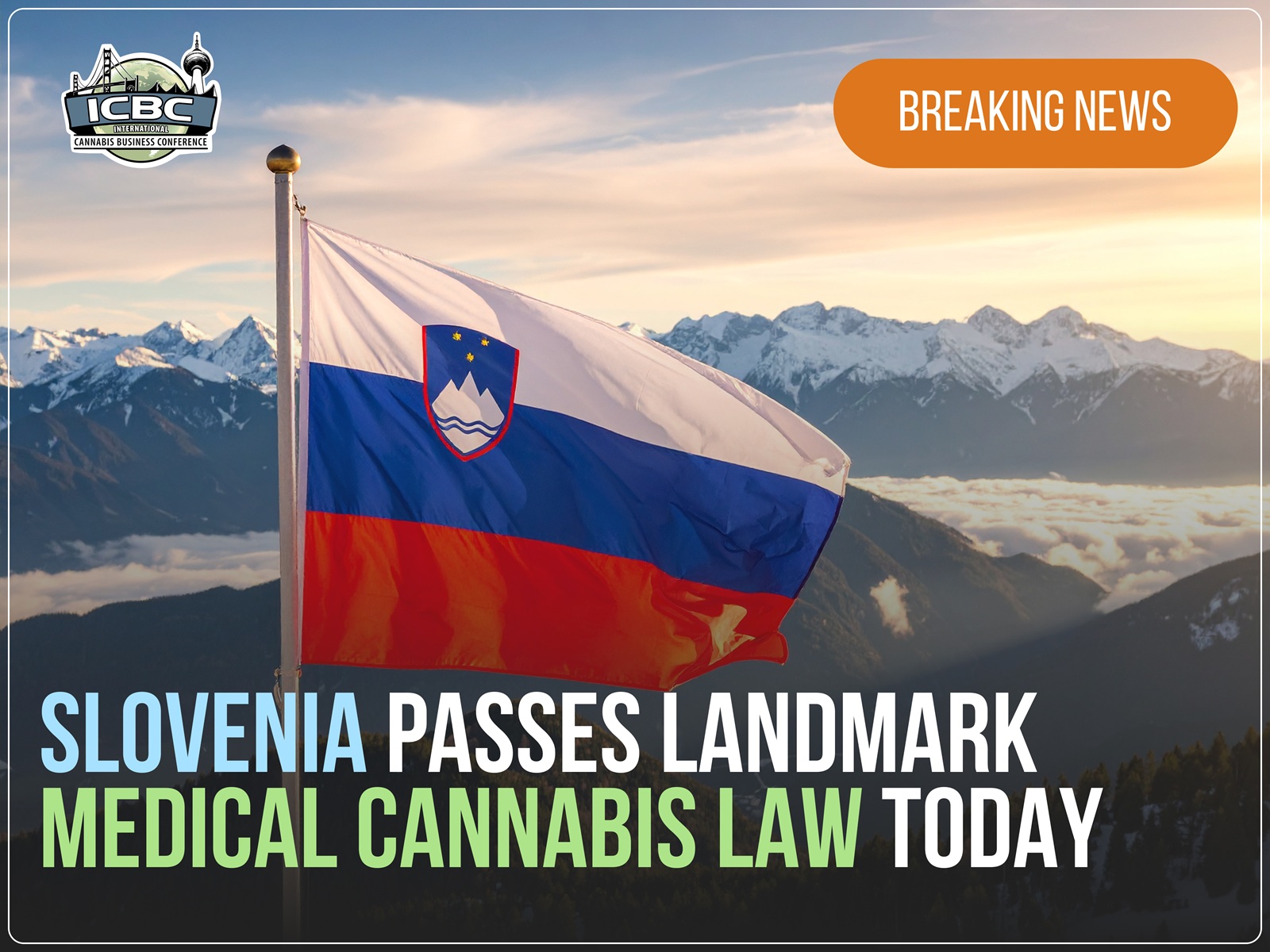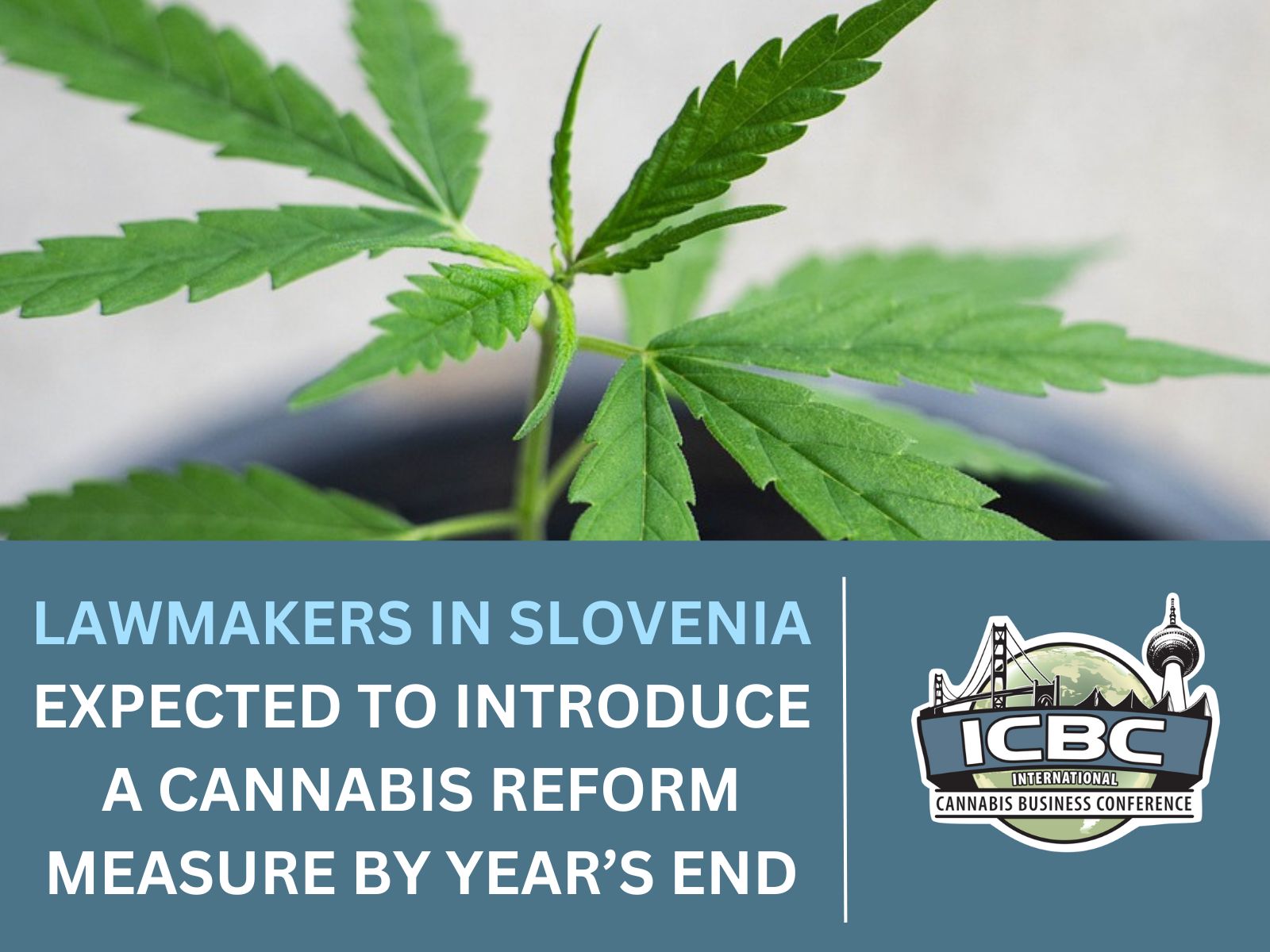
Cannabis Opponents Spread Misinformation In Slovenia

Cannabis Opponents Spread Misinformation In Slovenia
Earlier this month cannabis opponents in Slovenia provided an open letter to European Commissioner for Home Affairs Ylva Johansson. The cannabis opponents also issued a press release, which is common for anti-cannabis propaganda efforts. The letter was sent by Preventivna Platforma, which describes itself as ‘a network of NGOs that work in the field of prevention.’ The entity’s professed overall goal is ‘quality in prevention’ and they tout in their publications that their efforts ‘receive financial assistance from Slovenia’s Ministry of Health.’
Preventivna Platforma’s letter was geared towards encouraging Commissioner Johansson to join them in opposing adult-use legalization in Germany. To someone that is not familiar with prohibitionist talking points, the letter may seem scary. However, as any long-time cannabis advocate will quickly point out, the letter is riddled with half-truths, lack of context, and in some cases, claims that are not supported by evidence and reality.
“As non-governmental organizations that work in the field of prevention, treatment, rehabilitation and recovery from drug use and addiction, we strongly oppose the legalization of cannabis. We are convinced that it will increase cannabis use and harm in Germany, and will also undermine the efforts of other EU member states in the field of preventing drug use and related harm.” the letter stated (translated from Slovenian to English.
As is often the case with anti-cannabis propaganda, the letter from Preventivna Platforma makes general claims that are easily refuted with peer-reviewed studies, logical reasoning, and government data from legal jurisdictions. For many years, opponents could make such claims and never be challenged because, after all, there were no legal jurisdictions to point to. That is obviously no longer the case.
We now know what happens when jurisdictions legalize cannabis for adult use; that the sky does not fall, and that the success of legalization in legal jurisdictions is likely why Preventivna Platforma relied so heavily on technical legal arguments in their letter rather than making a case that cannabis prohibition is better public policy than modernized regulation.
“Plans to legalize cannabis in Germany run counter to international drug control conventions, which have been ratified by all EU member states, among others. The International Narcotics Control Board (INCB) has repeatedly criticized similar policies in the United States, Canada and Uruguay.” Preventivna Platforma stated in its letter.
“By legalizing cannabis, Germany would also violate the sixth chapter of the Schengen Agreement, which stipulates that EU member states must respect the UN conventions on the control of illegal drugs and take the necessary measures to prevent illegal traffic in them. In addition, the German plans conflict with the EU Council Framework Decision 2004/757/RIF, which states that EU member states must ensure that the production, acquisition, sale, distribution, marketing, transportation and importation of illicit drugs, including cannabis, a felony.” the letter goes on to say.
Preventivna Platforma states in its letter that, “the German government wants to open up a legal, commercial market for cannabis, something that has not yet happened in any EU member state.” Obviously, there are two countries that have already legalized a cannabis commercial market at a national level, albeit not in Europe, and Preventivna Platforma omitting that fact seems to be purposeful. Cannabis opponents will always try to deflect and distract from legalization succeeding in other places.
A classic cannabis prohibitionist talking point that was incorporated by Preventivna Platforma in its letter ironically makes a strong argument for widespread legalization, which is the only true way to prevent diversion from regulated markets to unregulated markets.
“Undoubtedly, the legalization of cannabis in Germany would have a significant impact at least on neighboring countries. In a single market with open borders, it would be difficult to ensure that hemp grown legally in Germany does not divert to more profitable markets in other countries. Indeed, experience from the United States of America confirms that there is a high risk of diversion of cannabis from legal to illegal markets in other areas where its sale is not allowed.” the open letter states.
The letter goes on to cherry-pick certain information while ignoring other available information that either directly refutes their claims or puts it into proper context.
“After a decade, the legalization of cannabis in the countries where it has been legalized so far is still relatively in its infancy, but the first findings worry us. Data from the US show that cannabis consumption has increased, particularly more intensive use. Canadian data is scarcer, but official statistics show that both regular and frequent cannabis users have increased in the years since legalization.” Preventivna Platforma stated.
For starters, adults consuming more cannabis is not automatically a bad thing, and studies are showing that cannabis is often used as a substitute for more harmful substances, which is clearly a great thing. There seems to never be controls in the collection process of government usage data to calculate for long-time cannabis consumers finally admitting to government data collectors that they consume cannabis.
Government data collectors will record those people as being ‘new users’ when that is not actually the case. Speaking from firsthand experience, there was no way that I was ever going to tell the government that I consumed a product that was prohibited, and it’s logical to assume that I am far from alone in changing my answer after my jurisdiction’s (Oregon) cannabis policies were modernized. People need to keep that in mind when there are ‘rising consumption rates’ reported post-legalization.
Furthermore, and the propaganda letter tries to make it seem as if the two are connected, while adult use may be increasing in legal jurisdictions, the same is not true for kids and young people. It’s a ‘three card monte’ maneuver that prohibitions use because they assume that most people won’t unpack their talking points and that people will assume that if consumption rates are going up, then clearly that extends to young people. But as we know from data out of Canada, which is not ‘scarcer’ despite what prohibitionists claim, as well as data out of the United States, a spike in youth consumption post-legalization has yet to materialize.
Per government data from the Oregon Health Authority, not only was there no spike in youth consumption following the launch of legal adult-use sales and outright possession legalization in 2015; youth consumption rates actually went down from 2012 to 2018 in Oregon. A broader study conducted by researchers at Michigan State University, which involved consumption survey data from over 800,000 respondents in states where cannabis sales were permitted, also found no spike in youth cannabis usage rates.
A study in 2021 conducted by researchers in Canada found ‘no significant differences’ in cannabis consumption rates before and after cannabis legalization in Canada. As of May 2022, data out of Uruguay also demonstrated no sustained changes in youth consumption rates post-legalization.
Another popular prohibitionist talking point that does not provide nearly enough context is that ‘the unregulated cannabis market still exists in Canada and the United States.’
“One of the main goals of legalization was to eliminate the illegal cannabis market. However, there is still a thriving illegal market in all jurisdictions, supplying both the local market and markets in neighboring countries.” Preventivna Platforma stated.
Make no mistake about it, the unregulated cannabis market will always exist, just as the unregulated tobacco and alcohol markets will always exist, and the market for fake apparel and bootlegged entertainment media will always exist. Just because an unregulated market exists to some small degree does not in any way justify prohibition and the economic and social costs that go with it. The goal is to mitigate the unregulated market as much as reasonably possible for various reasons, not the least of which are improving public health outcomes via boosting regulated product availability, and taking money out of the hands of organized crime.
One talking point that is seemingly always included in anti-cannabis propaganda is the ‘terror on the roadways’ talking point.
“The increase in use is accompanied, among other things, by an increase in the number of traffic accidents and accompanying deaths related to cannabis, an increase in the number of visits to emergency centers and hospitalizations…” the letter stated.
However, a study from this month out of Canada found that, per the researchers, “[N]either the CCA [Canadian Cannabis Act] nor the NCS [number of cannabis stores per capita] is associated with concomitant changes in (traffic safety) outcomes. … During the first year of the CRUL’s [cannabis recreational use laws] implementation in Toronto, no significant changes in crashes, number of road victims and KSI [all road users killed or severely injured] were observed.”
The Preventivna Platforma letter goes on to indicate that there is still a lot that is “unknown” when it comes to legalization and that the “consequences” of cannabis hyperemesis syndrome (CHS), which is an extremely rare condition, were “not known until a few years ago.” That claim was made despite the condition being mentioned in a study nearly twenty years ago.
Also, a study from this month out of the legal state of Massachusetts in the U.S. found that CHS only represented .1% of all hospitalizations in 2021. It’s a serious thing that sufferers need to be mindful of, however, it’s far from being an epidemic and the most common treatment for CHS is a warm shower and refraining from consuming cannabis. Furthermore, it’s entirely possible that the current rates for CHS in legal jurisdictions were always what is being reported now, but that people were too afraid to seek out medical advice pre-legalization due to fear of prosecution.
One citation that stood out to me in the letter was applied to the claim that THC vaping is responsible for “an epidemic of serious lung disease.” However, upon further examination, the citation is from the United States Centers for Disease Control’s (CDC) tobacco overview page. The CDC points out on that page that it is not regulated products that are responsible for suspected lung issues, but rather, the unregulated market, and it is classified as an “outbreak” and not an “epidemic.”
“National and state data from patient reports and product sample testing show tetrahydrocannabinol (THC)-containing e-cigarette, or vaping, products, particularly from informal sources like friends, family, or in-person or online dealers, are linked to most EVALI cases and play a major role in the outbreak.” the CDC states on the page that is cited in the Slovenian anti-cannabis propaganda letter.
“Vitamin E acetate is strongly linked to the EVALI outbreak. Vitamin E acetate has been found in product samples tested by FDA and state laboratories and in patient lung fluid samples tested by CDC from geographically diverse states. Vitamin E acetate has not been found in the lung fluid of people that do not have EVALI.” the page goes on to say, which directly refutes the claim in the propaganda letter that THC from regulated products is the culprit for issues.
Again, the cannabis prohibitionists responsible for the recent letter make no genuine effort to argue that cannabis prohibition is an effective policy. Rather, they offer up half-truths, lack of context, and in some cases outright inaccurate information. Much like cannabis prohibitionists found elsewhere in the world, such as Kevin Sabet, they do anything they can to slow down the modernization of cannabis policies because, presumably, they know that the status quo is on their side, and they don’t have to move any needles.
All cannabis opponents must do is muck up the process and try to confuse as many people as possible, and they know it. They presumably believe that doing so will prevent meaningful reform from occurring, and that comes at the expense of having a rational conversation about cannabis policy in Slovenia, Europe, and anywhere else where these types of cannabis propaganda spreaders operate. Hopefully the citizens of Slovenia and European Commissioner for Home Affairs Ylva Johansson will see through the propaganda, and support Slovenia modernizing its cannabis policies for the sake of improved public health outcomes, as well as for the increased economic opportunities that sensible cannabis policies create.
Share article


Share article
Join Our Awesome Community
Join Our Awesome Community
Join Our Awesome
Community
Get all the latest industry news
delivered to your inbox







